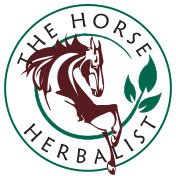
The Use of Omeprazole in Horses (gastric & duodenal ulcers)
Omeprazole is used to treat gastric and duodenal ulcers. Omeprazole brands include: Ulcerguard, Omeguard, Gastroguard, Gastropell, Equesta Equine Granules and more.
ALWAYS check the ingredients list of any supplements you are buying for your horse.
Gastric ulcers (EGUS) in the nonglandular squamous mucosa and glandular mucosa are common in horses involved in competition. Risk factors include intense exercise and dietary factors, such as high concentrate diets and periods of food restriction.
Gastric ulcers should be suspected if the horse shows one or more of the following signs:
- Unwillingness to perform as usual, including resistance to riding aids.
- Picky appetite.
- Transient colic signs directly after feeding, especially when feeding high grain feed.
- Dullness.
- Low Body Condition Score.
- Resistance to girthing.
A saliva test can be used to detect ulcers.
Your horse may be diagnosed with either EGGD – Equine Glandular Gastric Disease or ESGD- Equine Squamous Gastric Disease. Omeprazole heals Squamous ulcers but not ulcers in the glandular portion of the gut so DO NOT SELF DIAGNOSE and potentially cause more problems for your horse.
If your horse is diagnosed with ESGD then a course of omeprazole will be between 30-60 days. Best practice is to start reducing the dose before finishing the course to try to reduce the rebound effect.
Long term use of omeprazole inhibits calcium and magnesium absorption. It’s not proven yet in horses to cause fractures but this has been proven in humans. This will also hasten any deterioration in bones and joints. Long term use totally ruins any gut balance.
Make sure the horse has access to hay 24/7. Medicinal Aloe, linseed and chia are all mucilaginous, Slippery Elm powder given daily lines the entire gastro-intestinal tract. A low sugar diet is also advised.
Ongoing research shows pectin and lecithin combined with polysaccharides from medicinal mushrooms helps to stabilize and protect the intestinal mucosa, including the glandular region of the gut.
In summary – Use omeprazole judiciously. Make sure you and your vet have a plan to allow the squamous ulcers to heal whist putting in place dietary changes and supplements to avoid the gut ulcerating again.
NEVER ride a horse who has an empty gut as it produces more acid.
